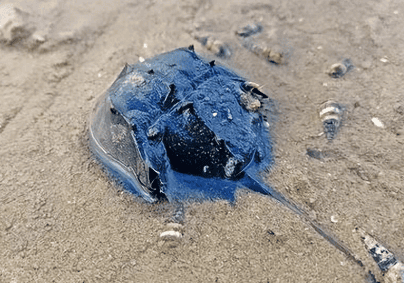The blue blood of horseshoe crabs contains a special cell lysate called horseshoe crab amoeba-like cell lysate. This substance is highly sensitive to lipopolysaccharides (endotoxins), a component of the cell wall of Gram-negative bacteria.

Therefore, the blood of horseshoe crabs can be used to make reagents dedicated to the detection of bacterial endotoxins - LAL (Limulus reagent) ). This reagent has a wide range of applications in the medical, pharmaceutical and food industries, and can accurately and quickly detect whether the internal tissues of the human body are disease-causing due to bacterial infection, as well as monitor toxin contamination.

 扫一扫微信交流
扫一扫微信交流
发布评论